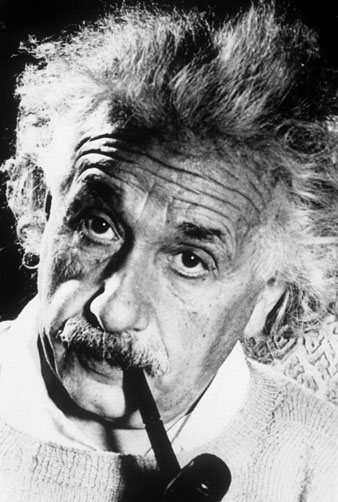 LUCIEN AIGNER / Rex USA, Courtesy Everett Collection
LUCIEN AIGNER / Rex USA, Courtesy Everett Collection
It didn’t take an Einstein to realize that if the 1932 Disarmament Conference failed, the world could be at war again.
What the inventive genius of mankind has bestowed upon us in the last hundred years could have made human life care free and happy if the development of the organizing power of man had been able to keep step with his technical advances. As it is, the hardly bought achievements of the machine age in the hands of our generation are as dangerous as a razor in the hands of a three-year-old child. The possession of wonderful means of production has not brought freedom — only care and hunger.
Worst of all is the technical development which produces the means for the destruction of human life, and the dearly created products of labor. We older people lived through that shudderingly in the World War. But even more terrible than this destruction seems to me the unworthy servitude into which the individual is swept by war. Is it not terrible to be forced by the community to deeds which every individual feels to be most despicable crimes? Only a few have had the moral greatness to resist; they are in my eyes the true heroes of the World War.
There is one ray of hope. It seems to me that today the responsible leaders of the several peoples have, in the main, the honest will to abolish war. The opposition to this unquestionably necessary advance lies in the unhappy traditions of the people which are passed on like an inherited disease from generation to generation because of our faulty educational machines. Of course the main supports of this tradition are military training and its glorification, and not less important, the press which is so dependent upon the military and the larger industries. Without disarmament these can be no lasting peace. On the contrary, the continuation of military armaments in their present extent will with certainty lead to new catastrophies.
Hence the Disarmament Conference in Geneva in February, 1932, will be decisive for the fate of the present generation and the one to come. If one thinks back to the pitiful results achieved by the international conferences thus far held, it must be clear that all thoughtful and responsible human beings must exercise all their powers again and again, to inform public opinion of the vital importance of the conference of 1932. Only if the statesmen have, to urge them forward, the will to peace of a decisive majority in their respective countries, can they arrive at their important goal. For the creation of this public opinion in favor of disarmament every person living shares the responsibility, through every deed and every word.
The failure of the conference would be assured if the delegates were to arrive in Geneva with fixed instructions and aims, the achievement of which would at once become a matter of national prestige. This seems to be universally recognized, for the meetings of the statesmen of any two states, of which we have seen a number of late, have been utilized for discussions of the problem of disarmament in order to clear the ground for the conference. This procedure seems to me a very happy one, for two persons, or two groups, ordinarily conduct themselves most sensibly, most honorably, and with the greatest freedom from passion if no third person listens in, whom the others believe they must consider or conciliate in their speeches. We can only hope for a favorable outcome in this most vital conference if the meeting is prepared for exhaustively in this way by advance discussions in order that surprises shall be made impossible, and if, through honest good will, an atmosphere of mutual confidence and trust can be effectively created in advance.
Success in such great affairs is not a matter of cleverness, or even shrewdness, but instead a matter of honorable conduct and mutual confidence. You cannot substitute intellect for moral conduct in this matter — I should like to say, thank God that you cannot! It is not the task of the individual who lives in this critical time merely to await results and to criticize. He must serve this great cause as well as he can. For the fate of all humanity will be that fate which it honestly earns and deserves.


